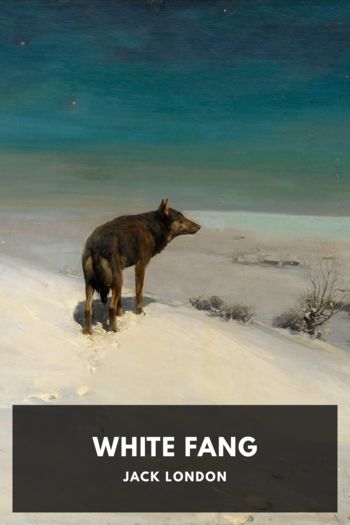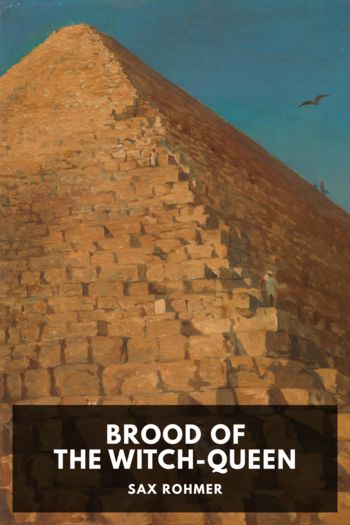Short Fiction - Robert E. Howard (the reading list TXT) 📗

- Author: Robert E. Howard
Book online «Short Fiction - Robert E. Howard (the reading list TXT) 📗». Author Robert E. Howard
“You need a bandage on that leg.” Valeria ripped a length of silk from a hanging and knotted it about her waist, then tore off some smaller strips which she bound efficiently about the barbarian’s lacerated limb.
“I can walk on it,” he assured her. “Let’s begone. It’s dawn, outside this infernal city. I’ve had enough of Xuchotl. It’s well the breed exterminated itself. I don’t want any of their accursed jewels. They might be haunted.”
“There is enough clean loot in the world for you and me,” she said, straightening to stand tall and splendid before him.
The old blaze came back in his eyes, and this time she did not resist as he caught her fiercely in his arms.
“It’s a long way to the coast,” she said presently, withdrawing her lips from his.
“What matter?” he laughed. “There’s nothing we can’t conquer. We’ll have our feet on a ship’s deck before the Stygians open their ports for the trading season. And then we’ll show the world what plundering means!”
The Hyborian AgeNothing in this article is to be considered as an attempt to advance any theory in opposition to accepted history. It is simply a fictional background for a series of fiction-stories. When I began writing the Conan stories a few years ago, I prepared this “history” of his age and the peoples of that age, in order to lend him and his sagas a greater aspect of realness. And I found that by adhering to the “facts” and spirit of that history, in writing the stories, it was easier to visualize (and therefore to present) him as a real flesh-and-blood character rather than a ready-made product. In writing about him and his adventures in the various kingdoms of his Age, I have never violated the “facts” or spirit of the “history” here set down, but have followed the lines of that history as closely as the writer of actual historical-fiction follows the lines of actual history. I have used this “history” as a guide in all the stories in this series that I have written.
Of that epoch known by the Nemedian chroniclers as the Pre-Cataclysmic Age, little is known except the latter part, and that is veiled in the mists of legendry. Known history begins with the waning of the Pre-Cataclysmic civilization, dominated by the kingdoms of Kamelia, Valusia, Verulia, Grondar, Thule and Commoria. These peoples spoke a similar language, arguing a common origin. There were other kingdoms, equally civilized, but inhabited by different, and apparently older races.
The barbarians of that age were the Picts, who lived on islands far out on the western ocean; the Atlanteans, who dwelt on a small continent between the Pictish Islands and the main, or Thurian Continent; and the Lemurians, who inhabited a chain of large islands in the eastern hemisphere.
There were vast regions of unexplored land. The civilized kingdoms, though enormous in extent, occupied a comparatively small portion of the whole planet. Valusia was the westernmost kingdom of the Thurian Continent; Grondar the easternmost. East of Grondar, whose people were less highly cultured than those of their kindred kingdoms, stretched a wild and barren expanse of deserts. Among the less arid stretches of desert, in the jungles, and among the mountains, lived scattered clans and tribes of primitive savages. Far to the south there was a mysterious civilization, unconnected with the Thurian culture, and apparently pre-human in its nature. On the far-eastern shores of the Continent there lived another race, human, but mysterious and non-Thurian, with which the Lemurians from time to time came in contact. They apparently came from a shadowy and nameless continent lying somewhere east of the Lemurian Islands.
The Thurian civilization was crumbling; their armies were composed largely of barbarian mercenaries. Picts, Atlanteans and Lemurians were their generals, their statesmen, often their kings. Of the bickerings of the kingdoms, and the wars between Valusia and Commoria, as well as the conquests by which the Atlanteans founded a kingdom on the mainland, there were more legends than accurate history.
Then the Cataclysm rocked the world. Atlantis and Lemuria sank, and the Pictish Islands were heaved up to form the mountain peaks of a new continent. Sections of the Thurian Continent vanished under the waves, or sinking, formed great inland lakes and seas. Volcanoes broke forth and terrific earthquakes shook down the shining cities of the empires. Whole nations were blotted out.
The barbarians fared a little better than the civilized races. The inhabitants of the Pictish Islands were destroyed, but a great colony of them, settled among the mountains of Valusia’s southern frontier to serve as a buffer against foreign invasion, was untouched. The Continental kingdom of the Atlanteans likewise escaped the common ruin, and to it came thousands of their tribesmen in ships from the sinking land. Many Lemurians escaped to the eastern coast of the Thurian Continent, which was comparatively untouched. There they were enslaved by the ancient race which already dwelt there, and their history, for thousands of years, is a history of brutal servitude.
In the western part of the Continent, changing conditions created strange forms of plant and animal life. Thick jungles covered the plains, great rivers cut their roads to the sea, wild mountains were heaved up, and lakes covered the ruins of old cities in fertile valleys. To the Continental kingdom of the Atlanteans, from sunken areas, swarmed myriads of beasts and savages—ape-men and apes. Forced to battle continually for their lives, they yet managed to retain vestiges of their former state of highly advanced barbarism. Robbed of metals and ores, they became workers in stone like their distant ancestors, and had attained a real artistic level, when their struggling culture came into contact with the powerful Pictish nation. The Picts had also reverted to flint, but had advanced more rapidly in the matter of population and war-science. They had none





Comments (0)